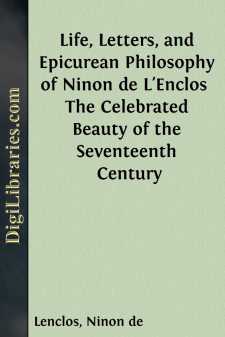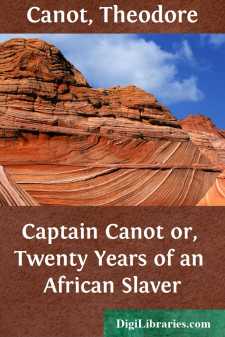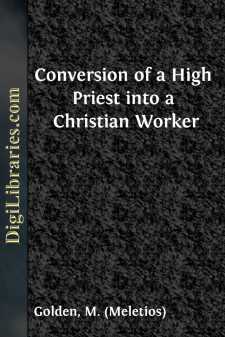Non-Classifiable
- Non-Classifiable 1768
Non-Classifiable Books
Sort by:
by:
Thomas Watkins
Having, when young, imbibed a particular inclination to study the culture of the cucumber and melon, under the direction of my father, whose character as an early framer was in high repute, I assiduously tried every experiment which was calculated to improve upon his system, by bringing them to a more complete state of perfection. In marking the progress of their growth, I usually committed to writing...
more...
With this book begins the work of darkness, in which I have for the last eight years been enveloped, though it has not by any means been possible for me to penetrate the dreadful obscurity. In the abyss of evil into which I am plunged, I feel the blows reach me, without perceiving the hand by which they are directed or the means it employs. Shame and misfortune seem of themselves to fall upon me. When...
more...
by:
Ninon de Lenclos
CHAPTER I Ninon de l'Enclos as a Standard To write the biography of so remarkable a woman as Ninon de l'Enclos is to incur the animadversions of those who stand upon the dogma, that whoso violates one of the Ten Commandments is guilty of violating them all, particularly when one of the ten is conventionally selected as the essential precept and the most important to be observed. It is purely...
more...
by:
Theodore Canot
My Dear Willis, While inscribing this work with your name, as a testimonial of our long, unbroken friendship, you will let me say, I am sure, not only how, but why I have written it. About a year ago I was introduced to its hero, by Dr. James Hall, the distinguished founder and first governor of our colony at Cape Palmas. While busy with his noble task in Africa, Dr. Hall accidentally became acquainted...
more...
by:
Allen Chapman
CHAPTER I THE NIGHT RUN “Ralph Fairbanks.” “On hand, sir.” “You are to relieve Fireman Cooper on the Dover slow freight.” “All right, sir.” Ralph Fairbanks arose from the bench on which he was seated in the roundhouse at Stanley Junction. Over a dozen men had been his companions for the past hour. There were engineers waiting for their runs, firemen resting after getting their...
more...
by:
William W. Mann
THE ESPERANTO ALPHABET(WITH PHONETIC PRONUNCIATION). The Esperanto Alphabet has 28 letters—23 consonants, 5 vowels:—A, a(ah) likeainfatherorpa; aspatro(pah'troh). In unaccented syllables it should not be dwelt upon, and in all cases it should be pronounced quite purely, without the slight drawlingr-sound which is sometimes added to the corresponding vowel in EnglishahB, b(bo) as in EnglishbC,...
more...
by:
Sara Cone Bryant
Not long ago, I chanced to open a magazine at a story of Italian life which dealt with a curious popular custom. It told of the love of the people for the performances of a strangely clad, periodically appearing old man who was a professional story-teller. This old man repeated whole cycles of myth and serials of popular history, holding his audience-chamber in whatever corner of the open court or...
more...
PREFACE In placing this second edition in the hands of my readers I most gratefully acknowledge the splendid assistance of my subscribers, and the kindness with which this book has been received by the General Public, who made it possible for me to accomplish my intended purpose, ever since I left home, that I should give, to the general public, an account of my conversion into a practical Christian...
more...
HON. FRED. DOUGLASS'S LETTER Dear Miss Wells: Let me give you thanks for your faithful paper on the lynch abomination now generally practiced against colored people in the South. There has been no word equal to it in convincing power. I have spoken, but my word is feeble in comparison. You give us what you know and testify from actual knowledge. You have dealt with the facts with cool, painstaking...
more...
To record the woes of authors and to discourse de libris fatalibus seems deliberately to court the displeasure of that fickle mistress who presides over the destinies of writers and their works. Fortune awaits the aspiring scribe with many wiles, and oft treats him sorely. If she enrich any, it is but to make them subject of her sport. If she raise others, it is but to pleasure herself with their...
more...











